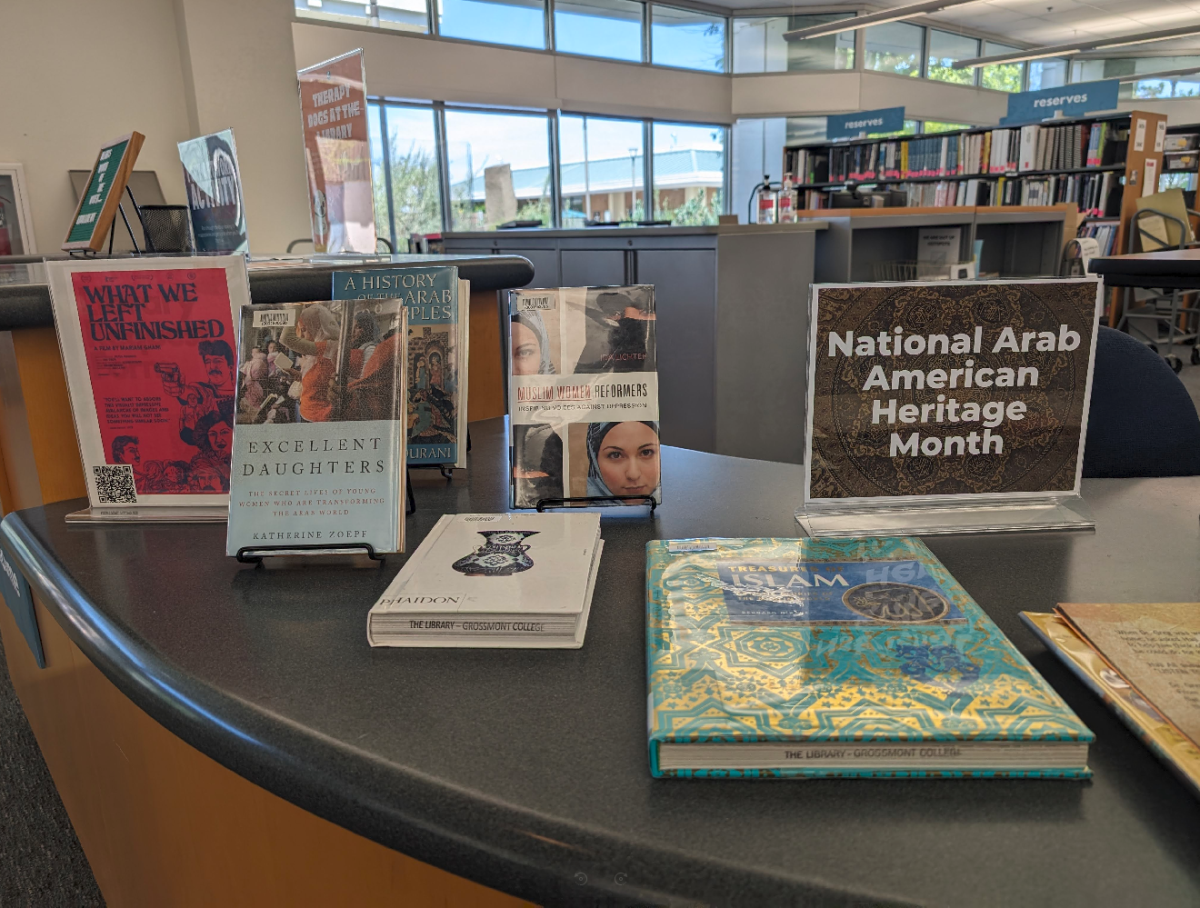Editor’s Note: Mimi Pollack, who teaches English as a Second Language (ESL), recently asked her students if any of them would like to have their essays about customs in their former countries reprinted by the GC Summit. Following are essays submitted by ESL students Bahjat Yalda and Nafih Sabagh. The GC Summit welcomes articles contributed by students. If you would like your article considered for publication, please submit them through your professor or send them directly to the GC Summit via [email protected]
GROSSMONT COLLEGE– Every country has its culture and traditions, and different countries, sometimes, have different viewpoints of the same situation. We live in our countries, and most of the time, we have to obey these traditions even if we dislike them. I lived in Iraq for about 48 years. My country, as many other countries in the Middle East, has its culture and traditions that rule the society; furthermore, in many places, they have more power than laws. In Iraq, there are many traditions that I dislike, but revenge and fasil– which will be explained later- are the worst.
Revenge is a big problem in Iraq. Hammurabi, the famous Babylonian king 1795- 1775 BC, was the first lawmaker in history. One of the laws he made states,” an eye for an eye and a tooth for a tooth.” This law was about 3800 years ago, but for Iraqi people, it is as fresh as Hammurabi’s days in spite of many new laws passed by different governments to put an end to it. If someone kills, assaults, hurts, or does something wrong according to the tribe’s traditions; for example, a boy from one tribe is seeing a girl of another tribe, or even the same tribe, it will be a big problem, and the men of the girl’s family have to do their duty to get revenge for their honor and kill the assailant, or they will live with shame for the rest of their lives.
In addition, if the assailant is sentenced in the court, that doesn’t mean he will be safe after he finishes his sentence. Furthermore, not only will the assailant be in danger, but every man or even kid in his family such as brothers, father, uncles, and cousins. I think it is very bad and unreasonable for someone to be punished for others’ mistakes. Also, people must respect the law and solve their problems inside the courts as civilized people, not with their hands outside the court.
Fasil is another story, and many times it is a way to end the revenge. It means to pay for the assault and stop the revenge after the agreement of the tribes or families. When something wrong happens, the old men of the assailant’s tribe ask the other family to postpone their revenge for a week or two; it is called atwa. Through that time, they try to invite the men in charge from the other tribe in one house to discuss the matter, and evaluate how much the guilty party has to pay to stop the revenge. If they agree, nobody will be hurt. But if they disagree, somebody will be hurt or even killed, and the revenge story will continue from one family to another for years and decades. Nothing but fasil can stop the series of revenges.
When we think of the idea, it seems a good way to solve problems in a tribal society like Iraq, but the way they sometimes solve them is humanly a big problem, for sometimes the price is unbelievable. For instance, some tribes are so powerful that they ask for gifts of teenage girls to stop the revenge. If they agree, they do not ask the girls if they accept the deal or not, and the new family will treat them as slaves, just to humiliate their families. When I think of that, I feel that both sides treat the girls not as human beings but as things, like money, furniture, cars, etc. Women in our society have less value than men, so no one asks them their opinions, and everything will go on against their will. Although, they are not part of the problem, they become part of the solution, and have to pay with their freedom, happiness, and their own lives to save others.
Some of these traditions were popular in Europe hundreds of years ago, but in Iraq, in the twenty-first century, we still have them, and the tribes are not ready yet for the changes that happened to the civilized countries. When I think of these traditions and others, I believe that our society needs hundreds of years to change people’s minds, and I also believe that the changes will not start in my life after reviewing the news of my country.
*
By Nafih Sabagh
GROSSMONT COLLEGE — My family grew up in Iraq. In that place, we lived in a Middle Eastern culture for many years. Then, we moved to Jordan, and there, the environment and beliefs were pretty much similar to those in Iraq. These were the places where we had lived in before we came to the U.S.A., and met a totally different culture, values and living style. People in my country back home had some traditions which I absolutely don’t like, and I was always trying to avoid them, and at the same time, they had their noble habits and values which I really like.
People from my country used to shoot bullets from their guns in the air on many occasions. Some of them were happy, while the others were sad. For example, during a wedding celebration usually the family and the friends of the groom greeted him when he reached the house of his bride by shooting their guns in the air. Another occasion is at a funeral, while they were lifting the coffin to take the person out for burying. During these moments, people shot their guns as a signal to neighbors to gather at that place to share this family’s sad moments. Also, another famous event that ended with celebration by shooting was when the National football team won a football match, especially if this match was the final one. The firing started and never stopped!! In general, I don’t like this tradition because many accidents took place while there was shooting from the guns in the air and many of them caused death or bad injuries. People should celebrate in different way to express their happiness and enjoyment, or even their sadness.
People in my culture have their special way to deal with differences in ideas, or a conflict between neighbors or friends. It is an abnormal view to see two people or two different groups to debate on a certain subject or have a discussion about it. Everyone will show his power in a certain way to force his opinion upon the others. For example, if a conflict or disagreement rose between two neighbors or friends, they usually started their argument by talking. Then, they would start shouting at each other. The louder you shouted, the more you were right. That was their morals. If the argument didn’t stop at this stage, bad words would be used from each side to the other one. In the last stage of the scene, we may see fighting with hands or even guns appearing in some situations. I dislike these behaviors and the way they used to show that they are right by presenting their force, and not by using a civilized way.
On the other hand, we can see another different beautiful view. This view shows people from my country with their own great and honorable values. People from my country are kind and they have a stronger social life than that we feel in the U.S.A. We can feel this in different ways in the lifestyle of people back home. One of them is the family relationship between the parents and their children or among the siblings themselves. This relationship is very strong and the children show more respect to their parents, and they may stay living with their parents even after their marriage to take care of them, and this will lead to a stronger relationship between the grandparents and the grandchildren. In addition to that, people in my country visit each other and help each other in different ways. For instance, if a person get sick and he needs help to take him to the hospital or a physician, you can find someone who is willing to help, and stay with him to take care of the situation. I like these behaviors and I am doing my best to transfer them to my children.
In brief, the difference in the behaviors of nations regarding certain issues or events is a mirror for their beliefs or thoughts about that subject. According to this, searching in the culture of any nation or community will lead to habits or customs that we may strongly agree with like the social relationships in my country, or we might disagree and avoid them, as the gun shooting in the air or the way they solve their conflicts.
*
Yalda and Sabagh are students in ESL 103







